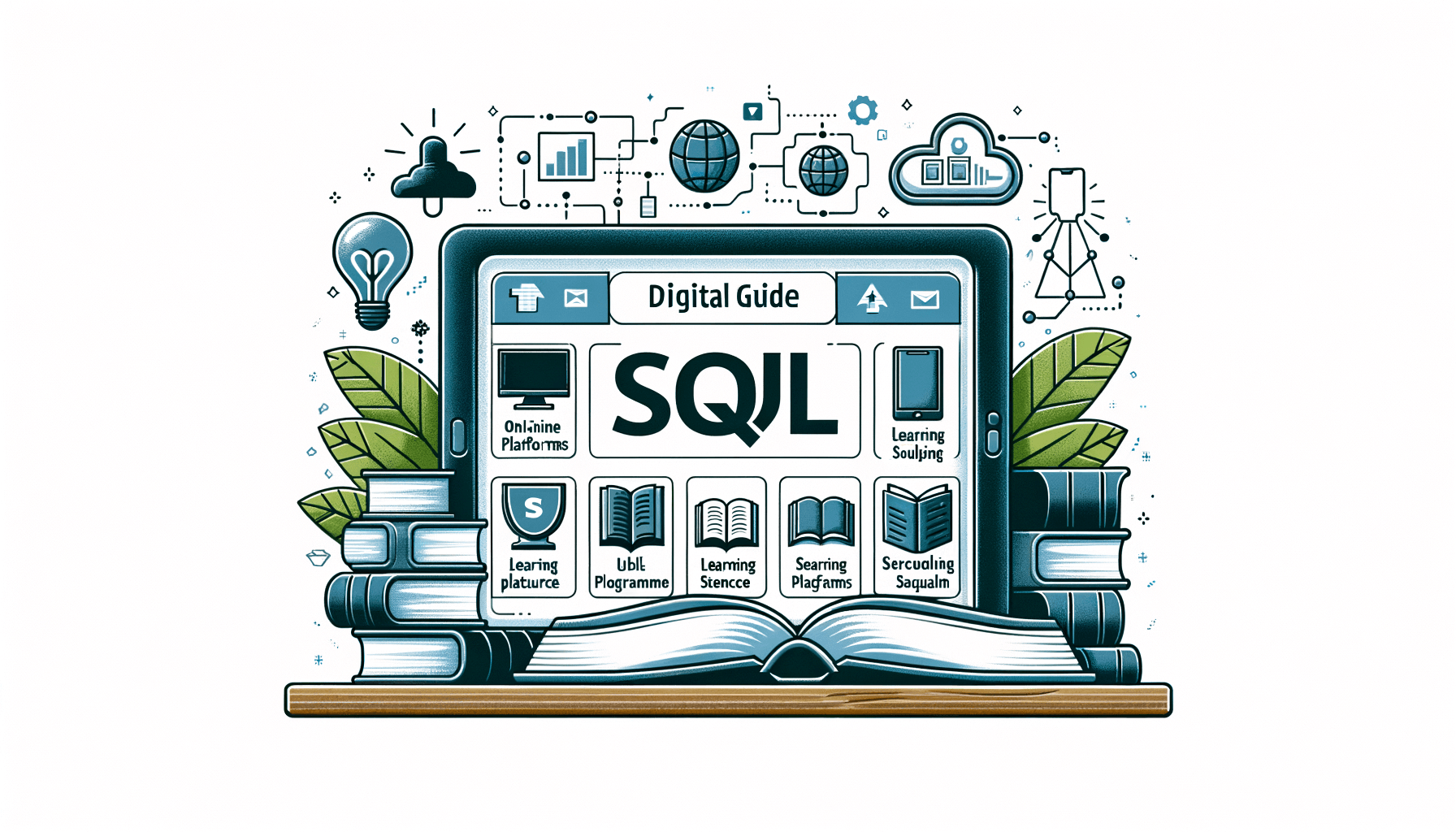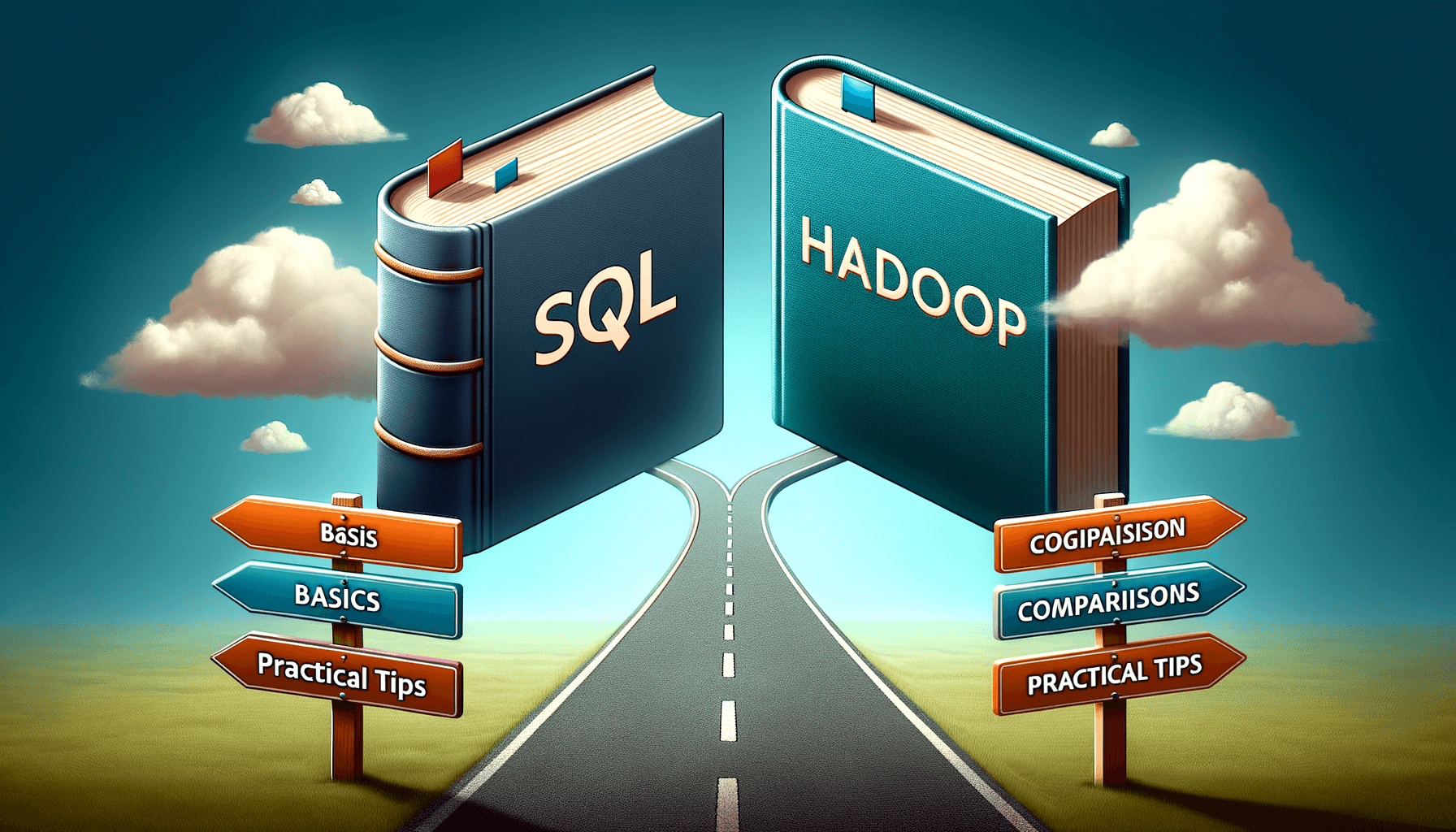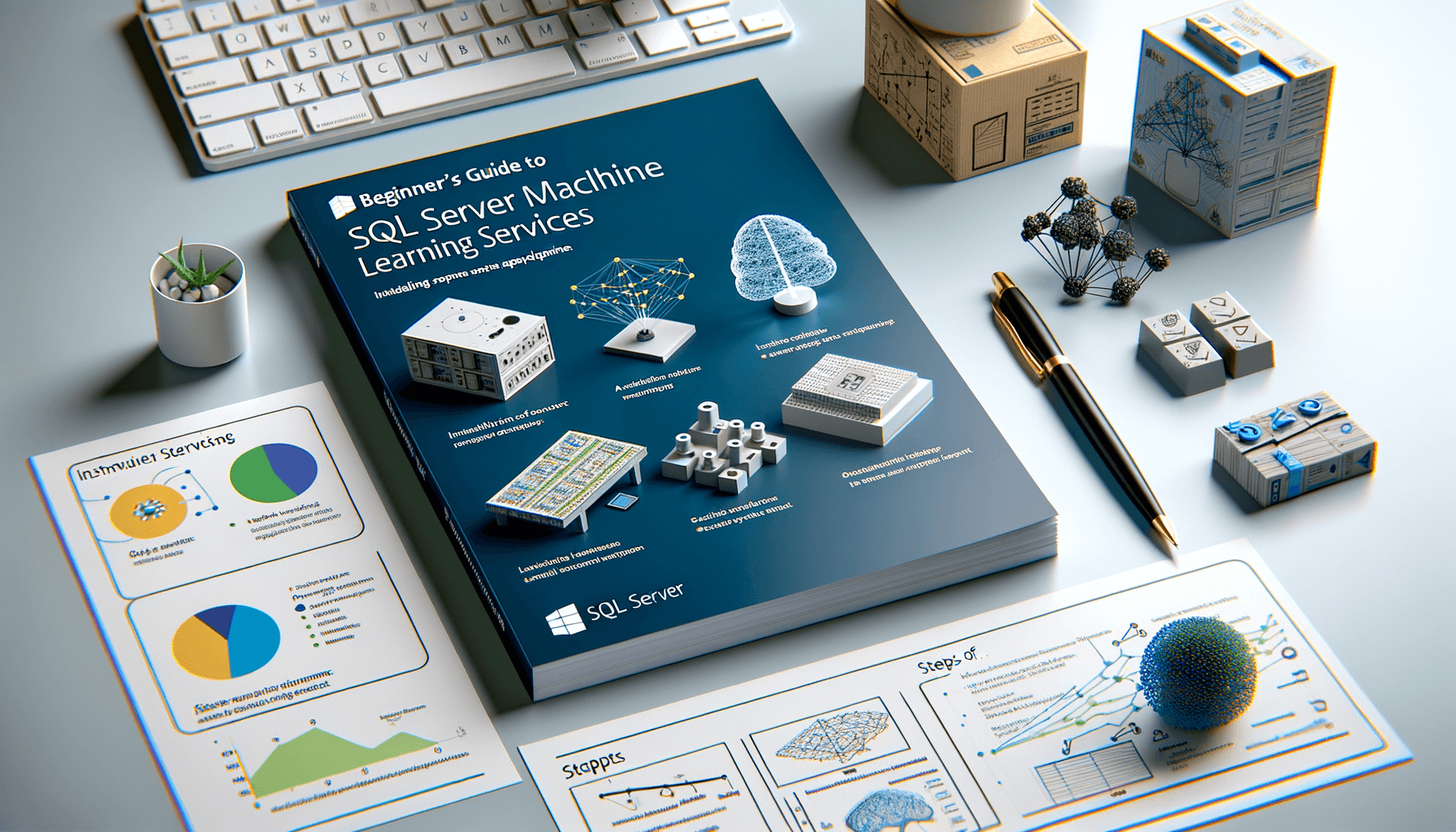A big variety of articles and resources

Why Learn SQL: Unlocking the Power of Data
 Sia Author and Instructor
Learn SQL
Sia Author and Instructor
Learn SQL
8 minute read
In today's fast-paced world, data is more important than ever. Businesses rely on data to make smart choices, stay ahead of the competition, and come up with new ideas. SQL, or Structured Query Language, is a key tool for managing and understanding this data. Knowing SQL opens up many job opportunities and helps you analyze data better. This article will explain why learning SQL is so important and how it can benefit you.
Key Takeaways
- Data is crucial for making smart business decisions and staying competitive.
- SQL is a basic skill for managing and understanding data in many industries.
- Knowing SQL can boost your career and lead to better job opportunities.
- SQL helps in extracting, cleaning, and analyzing data effectively.
- Learning SQL is essential for working with big data and data science projects.
The Importance of Data in Modern Business
Data-Driven Decision Making
In today's world, businesses rely heavily on data to make informed choices. Data-driven decision making helps companies understand their customers better, improve their products, and streamline operations. By analyzing data, we can spot trends and patterns that might not be obvious at first glance. This approach leads to more accurate and effective decisions.
Competitive Advantage Through Data
Using data effectively can give businesses a significant edge over their competitors. Companies that harness the power of data can identify new opportunities, optimize their marketing strategies, and enhance customer experiences. This competitive advantage is crucial in a fast-paced market where staying ahead is essential for success.
The Role of Data in Innovation
Data plays a vital role in driving innovation. By analyzing data, we can uncover insights that lead to new ideas and solutions. This process helps businesses develop innovative products and services that meet the evolving needs of their customers. In essence, data fuels creativity and progress, making it an indispensable tool for any forward-thinking organization.
In summary, data is a powerful asset that drives decision making, provides a competitive edge, and fosters innovation. Embracing data in our business strategies is not just beneficial but essential for long-term success.
SQL as a Fundamental Skill for Data Management
Understanding Relational Databases
Relational databases are the backbone of many applications we use daily. They store data in tables, making it easy to organize and retrieve information. Learning SQL helps us interact with these databases efficiently. By mastering SQL, we can perform tasks like querying data, updating records, and managing database structures.
SQL vs. Other Query Languages
While there are other query languages available, SQL remains the most popular. Its simplicity and power make it a preferred choice for many. Unlike some other languages, SQL is designed specifically for managing and manipulating relational databases. This focus allows us to perform complex queries with ease, making it an essential tool for data management.
The Ubiquity of SQL in Various Industries
SQL is used in a wide range of industries, from finance to healthcare. Its versatility means that professionals in many fields need to know SQL to handle data effectively. Whether we are analyzing sales data or managing patient records, SQL provides the tools we need to get the job done. Understanding SQL opens up numerous opportunities across different sectors.
Enhancing Career Opportunities with SQL Knowledge
Learning SQL can open up many job opportunities for us. Having SQL skills is in high demand across various industries. Companies value employees who can work with databases and analyze data effectively. Proficiency in SQL can lead to better-paying jobs and career growth. Understanding SQL is essential for many job roles, including data analysis, database management, and business intelligence. By learning SQL, we can increase our chances of landing a job with a higher salary and more career prospects.
SQL for Effective Data Analysis
Extracting Valuable Insights
In today's data-driven world, the ability to extract meaningful insights from data is crucial. SQL empowers us to query databases efficiently, allowing us to retrieve specific information quickly. By mastering SQL, we can craft precise queries that help us understand trends, patterns, and correlations within our data.
Data Cleaning and Transformation
Before we can analyze data, it often needs to be cleaned and transformed. SQL provides powerful tools for this purpose. We can use SQL commands to remove duplicates, filter out irrelevant information, and format data into a usable state. This step is essential for ensuring the accuracy and reliability of our analysis.
Advanced Analytical Techniques with SQL
Once our data is clean, we can apply advanced analytical techniques using SQL. This includes performing complex calculations, aggregating data, and creating detailed reports. With SQL, we can handle large datasets and perform sophisticated analyses that drive informed decision-making.
Mastering SQL for data analysis opens up a world of possibilities, from simple queries to advanced data manipulation. It's a skill that enhances our ability to make data-driven decisions and uncover hidden insights.
The Role of SQL in Big Data and Data Science
SQL in Big Data Technologies
SQL plays a crucial role in managing and analyzing large datasets. Big data technologies often rely on SQL for querying and processing data efficiently. From Hadoop to Spark, SQL interfaces are integrated to make data handling more accessible and intuitive.
Integrating SQL with Data Science Tools
In the realm of data science, SQL is indispensable. It seamlessly integrates with various data science tools, allowing us to extract, manipulate, and analyze data with ease. This integration helps in building robust data models and performing complex analyses.
Scalability and Performance Considerations
When dealing with massive datasets, scalability and performance are key concerns. SQL databases are designed to handle large volumes of data, ensuring that queries run smoothly and efficiently. By optimizing SQL queries, we can significantly improve the performance of our data operations.
Mastering SQL is essential for anyone looking to excel in the fields of big data and data science. It provides the foundation needed to tackle real-world problems and gain practical skills through hands-on projects.
Learning SQL: Resources and Best Practices
When it comes to learning SQL, we have a variety of resources and best practices at our disposal. From online courses and tutorials to practical projects and exercises, there are numerous ways to enhance our SQL skills. Engaging with the community and seeking professional support can also be beneficial in our learning journey. Exploring diverse learning opportunities can help us grasp SQL concepts effectively and apply them in real-world scenarios.
SQL for Database Security and Integrity
Ensuring Data Accuracy
In our digital age, keeping data accurate is crucial. SQL helps us maintain this accuracy by using constraints and validations. These tools ensure that only correct data enters our databases. For example, we can set rules to prevent duplicate entries or enforce specific formats for data fields.
Implementing Security Measures
Protecting data from unauthorized access is a top priority. SQL provides several features to enhance security. We can use user authentication and permissions to control who can view or change data. Additionally, industry-leading encryption methods can be applied to sensitive information, making it unreadable to those without proper access.
Compliance with Data Regulations
Many industries must follow strict data regulations. SQL helps us comply with these rules by offering tools to manage and audit data access. We can track who accessed or modified data and when these actions occurred. This tracking is essential for meeting legal requirements and ensuring data integrity.
By using SQL, we can ensure our databases are secure, accurate, and compliant with regulations. This not only protects our data but also builds trust with our users and clients.
SQL is essential for keeping your database safe and sound. It helps protect your data and ensures everything stays in order. Want to learn more? Check out our courses and become a SQL expert!
Conclusion
In conclusion, learning SQL is a valuable skill that opens up many opportunities in the world of data. It allows you to manage and analyze data efficiently, making it easier to draw meaningful insights. Whether you're looking to advance your career, improve your problem-solving skills, or simply understand data better, SQL is a tool that can help you achieve your goals. By mastering SQL, you can unlock the power of data and make more informed decisions in both your personal and professional life.
Frequently Asked Questions
What is SQL?
SQL stands for Structured Query Language. It's a tool used to manage and manipulate databases.
Why is SQL important for businesses?
SQL helps businesses understand and use their data. This can lead to better decisions and a competitive edge.
Can learning SQL improve my job prospects?
Yes, many jobs require SQL skills. Knowing SQL can make you more attractive to employers.
Is SQL hard to learn?
SQL is considered easy to learn compared to other programming languages. With practice, you can become good at it.
What are some good resources for learning SQL?
There are many online courses, tutorials, and books available. You can also join forums and communities for help.
How is SQL used in data analysis?
SQL is used to clean, organize, and analyze data. It helps in finding valuable insights and making informed decisions.
Related Articles

Best SQL Learning Resources: Your Ultimate Guide
10 minute read

Do we need SQL knowledge to learn Hadoop?
14 minute read





